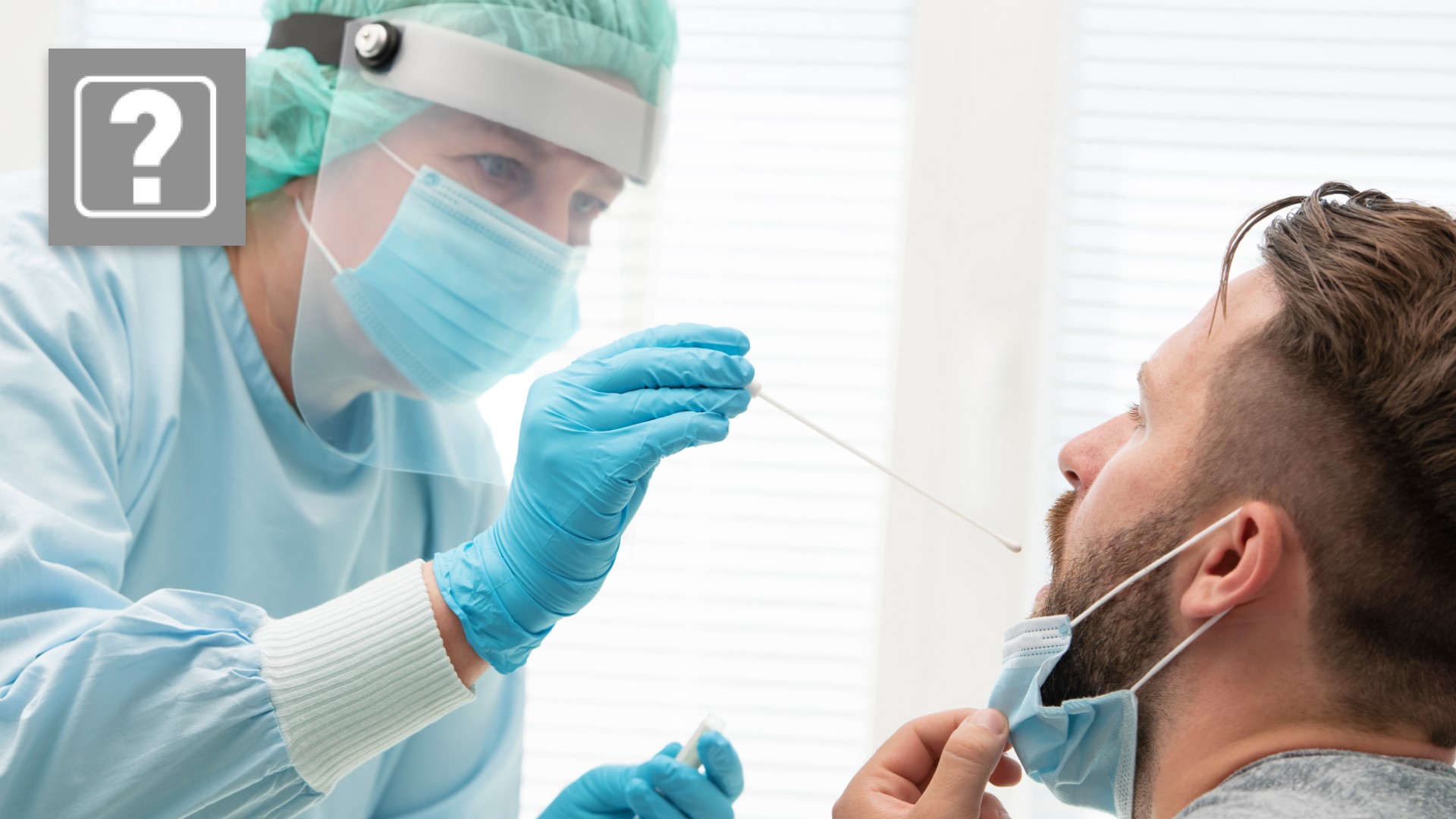WASHINGTON — As the omicron variant sweeps through the U.S., testing has never been more important. Early January brought a new claim to the forefront of at-home testing discourse: you should swab your throat when you test yourself.
In a TikTok with more than 5 million views, reporter Alison Hall shows herself testing negative for COVID-19 when she swabbed only her nose, but testing positive when she swabbed her throat. She says the positive diagnosis was confirmed by a PCR test.
This practice has also been endorsed by some top doctors in the U.S. So we're verifying all the latest information.
THE QUESTION
Is there evidence that you should swab your throat for an at-home antigen test?
OUR SOURCES
- Dr. Amesh Adalja, Senior Scholar at Johns Hopkins University
- Dr. Gigi Gronvall, Senior Scholar and Associate Professor at Johns Hopkins University
- Dr. William Morice, Chair of Mayo Clinic’s Department of Laboratory Medicine and Pathology and President of Mayo Clinic Laboratories
- The Food and Drug Administration (FDA)
- Two non-peer reviewed pre-print studies from US-based researchers and from Cape Town, South Africa
THE ANSWER
Some early studies found that omicron may be more detectable with a throat or saliva sample. While these studies have not been published in peer-reviewed journals, some top doctors have recommended this method anyway. However, our experts were split.
WHAT WE FOUND
The reason many experts, including Dr. Adalja and Dr. Gronvall, have made this recommendation is because early evidence suggests that the symptoms of the omicron variant present more in the throat than the nasal cavity, especially early on.
“Swabbing the nose and the throat gives you a better picture of where the virus might be,” Dr. Adalja said. “There are cases of people who don't have a positive test with just a nasal sample, but are positive when they test the back of their throat. And that may be due to different amounts of virus in different parts of the body, especially if people have throat predominant symptoms versus nasal predominant symptoms.”
Two studies, one from the United States and another from South Africa, appear to have found evidence for this. However, both studies are still under peer review and have not been published in medical journals as of the date this story is published.
A U.S.-based occupational case study of 30 people found that a saliva PCR test was able to identify an omicron infection earlier than a nasal antigen test. In that time in between, they say some of the subjects were infectious before testing positive with a nasal antigen.
The preprint put out by researchers in Cape Town, South Africa found that when they used PCR nasal swabs, 100% of delta infections and 86% of omicron infections were identified. When they used PCR oral saliva swabs, 71% of delta infections and 100% of omicron infections were identified.
Dr. Morice says that until we have sufficient medical evidence that throat swabbing is beneficial and works, he does not recommend it.
“You really can't make a decision like that about medical science off of a single observation,” he says. “You have to do some larger observations with controls and know more about the situation before you can make any conclusion.”
The FDA directed Verify researchers to a statement they released on Twitter which reads, in part, “We don’t have any data yet suggesting throat swabs are an accurate or appropriate method for at-home tests.”
However Dr. Adalja said the FDA is taking this stance because the organization is reactive, not proactive. They will not change their recommendations until the manufacturers of these tests submit for a change to the test instructions.
“The FDA is always going to be conservative, and they're always going to say follow instructions,” he says. “They're not going to do something that's not on the actual label that they've approved.”
Dr. Gronvall agrees, explaining that there are a number of saliva-based SARS-CoV-2 tests approved around the world, including in the United Kingdom. She says it's perfectly safe to swab your throat when using a rapid antigen test.
“Very often a sore throat is an indicator of a COVID infection, particularly with omicron,” Dr. Gronvall says. “If you want to try the combined sample, I don't see why you shouldn't.”
However, Dr. Gronvall said that for PCR tests that are taken at home and sent off to a lab for processing, it's better to stick to the manufacturers instructions.
Just like with all scientific advancements, answers to this question will change over time as more is discovered. However as of publishing, this claim is inconclusive as we do not have a consensus of answers among our experts.

